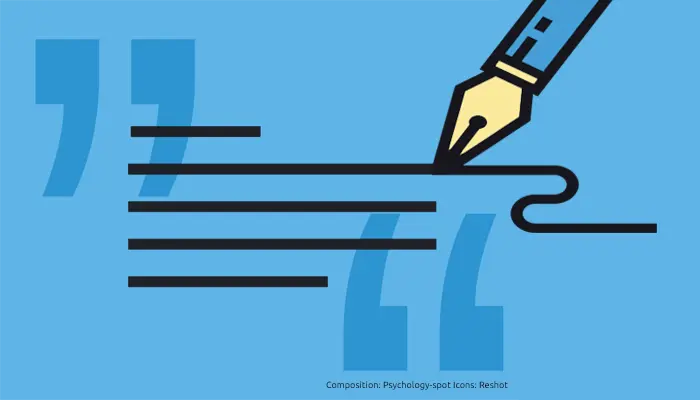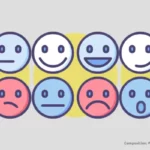
Western society is based on a relational model that encourages emotional dependence and unhealthy attachment. The idea of the better half, for example, according to which we need a partner who complements us and without whom we cannot live, stimulates dependency relationships. However, this excessive attachment is the origin of many of our sufferings and disappointments. Understanding it is the first step to free ourselves from that need to holding on to something or someone.
Quotes about attachment and the need to cling
1. “The origin of suffering is attachment” – Buddha
Buddhist philosophy believes that the origin of suffering is found in attachment. When we cling too much to something or someone, we are immediately gripped by the fear of losing it and we try to retain it by resorting to all possible ways, which makes us live in a state of constant anxiety that takes away the happiness that we intended to build. Thus we end up tangled in our own knot, victims of our excessive attachment.
2. “If we do not learn to let go, if we do not let go, if the attachment is stronger than us and we stay there tied, glued to those dreams, fantasies and illusions, the pain will grow without stopping and sadness will be our companion on the road” – Jorge Bucay
This therapist and writer follows in the wake of Buddhism by equating excessive attachment with pain and sadness. Clinging to our dreams, illusions and fantasies, without taking note of the changes that occur in ourselves and around us, is the most direct path to disappointment and frustration. That does not mean that we should not set goals, but that we have to learn not to subordinate our happiness to results.
3. “Like it or not, change always comes, and the greater the resistance, the greater the pain” – Alan Watts
This philosopher alerts us precisely of the need to take into account the change in our life, the only immutable reality. The more we resist, the more friction we will generate and the more pain we will experience, because the psychological force that we deploy to hold on to the old is returned to us in the form of suffering. Radical acceptance is the way to eliminate those frictions. It is the first step to change what can be changed or accept the inevitable while minimizing the damage it can cause.
4. “If we look at the object of our attachment with a new perspective, we understand that this object is not what makes us suffer, but the way we cling to it” – Matthieu Ricard
This quote about attachment of the French Buddhist monk is a wake-up call so that we learn to look more inside ourselves and less for external culprits. In fact, many times we blame people or adversity for our suffering when in reality the responsible is our attachment. People and circumstances change, pretending that everything remains unchanged makes no sense. Our desire for everything to stay the same and our reluctance to let go is what disappoints and hurts us the most.
5. “You can only lose what you cling to” – Buddha
The word “lose” is meaningless when we stop holding on. When we understand that nothing and no one belongs to us, it makes no sense to think in terms of loss. When we accept impermanence and understand that everything comes and goes, we learn to flow and let go, so that we fully enjoy the here and now, which often generates much more rewarding experiences than being obsessed with loss.
6. “Letting go gives us freedom, and freedom is the only condition for happiness. If we still cling to something in our hearts, we cannot be free”- Thich Nhat Hanh
Everything we cling to binds us. We got caught up in the Double Bind Theory. When we try to bind another person, we bind ourselves. When we try to own something, that thing owns us. When we overidentify with a quality, that quality limits us. When we hold on to an idea, our thought becomes rigid. For this reason, true freedom comes from letting go of attachments and opening ourselves up to change.
7. “The art of living… is neither careless drifting on the one hand nor fearful clinging to the past on the other. It consists in being sensitive to each moment, in regarding it as utterly new and unique, in having the mind open and wholly receptive”- Alan Watts
This quote about attachment gives us the key to learning to flow. To stop clinging does not mean to become leaves moved by the wind, without emotions or goals, but to be able to channel those contents into the present, so that we do not condition our happiness on what happened or what will happen. It is taking advantage of every moment considering it as a unique opportunity, with a mind free of attachments and open to what may happen.



